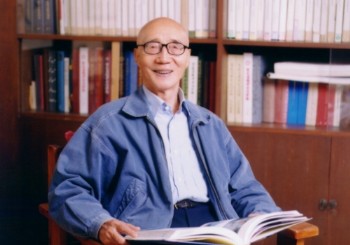
¡@¡@
Dr. Kwang-Ya Wang was born in 1922 at Kung-Yi City, Henan Province. He received a bachelor¡¦s degree in Economics from Asia University, Japan, a Ph.D. in Education from Golden State University, U.S.A., and an Honorary Ph.D. in Management from Chougju University, Korea. He has also been a middle school head master, a principal, and a professor. After he came to Taiwan in 1947, he served in the State Ministry of Audit. During his service, he saw the need for business accountants. In 1949, he established the private Yu Da Intensive School of Accounting in Taipei. After overcoming numerous obstacles, he finally built the school and dormitory at Nin An St. in 1953 and named it the Yu Da commercial Vocational School.
¡@¡@
In 1955, another branch was established in Pingjen city, Taoyuan. The school, known as the Yu Da Senior Commercial Vocational School later became an independent school in Taoyuan County. Currently, the total number of students, faculty and staff from both schools exceeds 20,000. Thus, it has become one of the largest middle schools in the world. Over the years, there have been more than 180,000 graduates becoming successful in their own occupations. With the addition in 1999 of the Yu Da Institule of Business Technology in Miaoli, the Yu Da School Education system was completed.
¡@¡@Due to Dr. Wang¡¦s continuous effort in developing private education in accordance with the national education policy, he and other education advocates formed the R.O.C. Private Educational Association in 1964. For 27 years from 1969 onwards, he was its chief executive. During that time, the benefits and medical insurance of the private school staff were far inferior to those of the public school making it difficult to maintain top staff and instructors. Thus, the quality of education in private schools was seriously affected through the loss of their best instructors. Dr. Wang took up the cause and fought vigorously. He represented the Association and fought for better benefits for the private schools staff from the government. After numerous efforts, The Legislative Yuan, in 1980, finally passed ¡§The private school Staff Insurance¡¦s Law¡¨, which provided greater security for private school employee. Dr. Wand didn¡¦t just stop there. In 1991, Dr. Wang convinced the government to pass another law, ¡§The Amendment of the Law of Private School Article 55¡¨, which was enacted in 1992 and provided benefits to school employees after retirement. Besides these two great achievements. Dr. Wang also secured other benefits, such as scholarships for private school students, tax exemptions on school property, recognition of private school teachers and their experience, low interest rates on school building and dormitory mortgages, government paid salaries for military and nursery personnel, tax exemption on imported educational facilities, and grants for students who have completed high school. Dr. Wang¡¦s contribution has had a great influence on private education in general. In 1995, after resigning as the Chief Executive, Dr. Wang was elected to be the life-time honorable Chief Executive of the R.O.C. Private Educational Association.
¡@¡@In addition to his dedication on securing benefits for private schools, Dr. Wang believed that international education exchanges played and important role. He visited numerous countries many times and formed alliances with 266 schools from 18 countries located in Europe, Asia, Africa, and the U.S. Every year, countless exchanges and visits take place between the Chinese-Korea Cultural Exchange Foundation in 1977, taking the position of CE. In 1994, he became the president. In 1989, Dr. Wang formed the KWANG-SHING CULTURAL AND EDUCATIONAL FOUNDATION, and served as its CEO, strengthening the quality of international education exchanges and the Chinese culture.
¡@¡@In 1987, the Chinese government allowed visitors from Taiwan for the first time. Being away from his hometown in Henan Province for many decades. Dr. Wang eagerly wanted to return home and share his success with the people of his hometown. He established the BEIJING YUDA JUNIOR COLLEGE, the Sheng-Da university in Zheng-Zhou, and Mongolia Economics, Trade and Foreign Language College. As an educator, he let his actions speak for his love for his home town. He also hoped educational exchanges from both sides of the Taiwan Strait would progress.
¡@¡@Dr. Wang his dedicated his whole life to education and business culture career. He has received recognition from various educational fields. He has been granted many awards from the Department of Education, private organizations and various public agencies. For example, in 1979, the Korean Private School Association granted Dr. Wang the ¡§Special Achievement Phoenix Award.¡¨ In1985, the ministry of Education granted him the ¡§Moo-Yi award¡¨, in 1987 Executive Yuan granted him the First Class Service Award, in 1989 the Baptist College in California granted him the Education Dedication Award, and so on. In 1981, in addition to these awards, the Korean government granted high honor award¡¦s ¡§Mou-Dan award¡¨, given by South Korea¡¦s President chun Do Huan. Dr. Wang is the first foreigner to receive this honor. In 1987, the World Peace Education awards from WUM International Education Group of U.S. In 1998, he also received ¡§Lee Kuo Ding management award¡¨ from ¡§China Management Association.
¡@¡@Looking back on Dr. Wang¡¦s last 50 years, one can see the history of Yu Da and the modern history of private education in Taiwan. Dr. Wang¡¦s unbelievable endurance and determination made it possible for Yu Da. His passion for education is indescribable. For the last 50 years, Dr. Wang¡¦s dedication has been a standard in education, he has lived Yu Da¡¦s motto ¡§be frugal, diligent, honest and self-reliant¡¨ to everyone.



